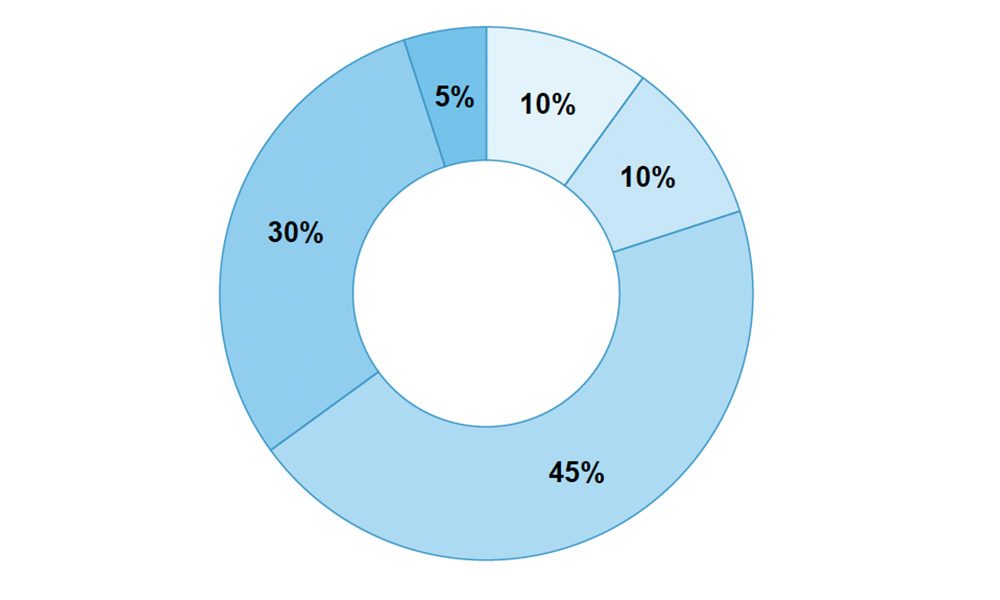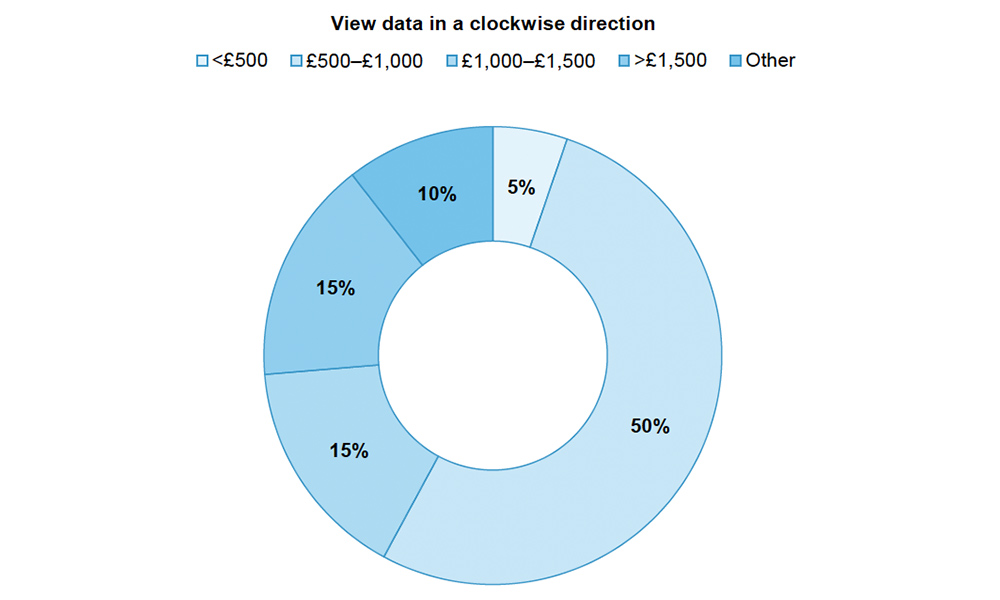Association of Facilitators 2023 Survey
Introduction
In late 2023, we conducted a survey of facilitators in the UK, inviting responses from AoF membership and beyond, including from those who buy facilitation services.
As well as some AoF-specific questions, we gathered insights into where facilitators work, fees charged, the impact of facilitator skills training and thoughts on the future of facilitation.
Results and highlights are presented below. Thank you to all who took part in the survey.
Highlights
- Most survey respondents were self-employed facilitators, with facilitation as a part of their work rather than at the heart of their work.
- The biggest impact of facilitator training was confidence.
- 50% of respondents charged between £500–£1,000, 30% charged more than this, 5% charged less than this and others offered variable fees, worked pro-bono and/ or preferred not to say.
- There is an appetite for sharing experiences as a way of supporting and advancing learning. Note that 2024 dates for online meetups will be coming soon.

How would you describe your facilitation practice?
View data in a clockwise direction
- I am employed and I occasionally facilitate as part of my role (10%)
- I am employed and I primarily facilitate as part of my role (10%)
- I am self-employed and facilitating is part of my work (45%)
- I am self-employed and facilitating is the heart of my work (30%)
- Other, including career breaks (5%)

If you charge a day rate and are happy to share this, please indicate your typical or average day rate inclusive of VAT or other charges.
Please also comment if you are someone who buys facilitation services.

How would you describe the impact of your facilitator training/ practice on your team/ organisation?

“My facilitation training was on the job! Becoming an accredited facilitator gave me the skills and confidence to be able to manage client relationships in a more relational way - i.e. less master/ servant, more partnering. This opened up opportunities for me to be able to work with more clients outside of pure facilitation roles.”
“Facilitation is super-important for engagement. I train and facilitate.”
“Completely changed the way I view groups and teams (with AoF).”
“It has had a big impact on my practice, especially in terms of finding different ways to engage people.”
“Training from AoF helped me to stand confidently alongside my fellow professionals. It continues to underpin my practice.”
“Very valuable. I was able to deploy what I learnt in a practical way in a variety of situations.”
“My impact is usually subtle, like the oil in an engine. My training has been through a series of cycles especially with IDHP, University of Surrey and Bournemouth University. Each level of learning has allowed me to capitalise on what particular things I can bring to individuals, groups and, by extension the organisations that they work in. Throughout the self-employed period of my career, now approaching 30 years, I have had a healthy mix of regular clients and new ones (often referrals from current clients). These factors lead me to think that the organisation values what I can bring.”
“The training with AoF enabled me to think from different perspectives and experience different styles of facilitation.”
“Helps me to enable groups to develop their leadership skills. Trained with AoF.”
“My initial training with AoF, followed by additional training with other organizations, has equipped me to support a diverse group of organizations (primarily charities) in achieving their goals.”
“Critical element for delivery of sessions.”
“Helps teamwork, quality and productivity.”
“Allowed me to bring in external best practice and new thinking to the business.”
“Impact is always difficult to ascertain. I endeavour to exercise perpetual reflexivity, drawing upon multiple influences.”
“A welcome extension of my skill-set.”
“As I have been facilitating programs for over 40 years, my facilitator training comes in multiple forms from many organizations. Behavioural Transformation, Firo-B, NLP to name just a few. My learning and development as a facilitator is a lifelong process and continues to the present.”
“All of the training/ education in this field contributes to my practice. There is no end to learning. I haven't been to AoF training.”
“Facilitation is an important element in making the process I manage successful.”
“Invaluable when bringing diverse groups together from different organisations to work together towards shared goals.”
What else would you like to tell us or see in the future of facilitation?
“I would like to learn more about facilitating micro learning - clients are busy and seem to have less time to spend in day long workshops, and I think there's a lot for me to learn about getting the most of shorter periods of time. Also virtual work is here to stay and I would like to update my skills in this area.”
“I would like to see facilitation being more defined.”
“I would like more opportunities to share experiences with other facilitators. The online conversations we (AoF members) had over Covid really added value to my understanding of the facilitator role in other cultures and organisations, which all helps to develop my skill base.”
“I'd love to understand what experience others have had in establishing themselves as independent facilitators - how they have gone about it etc.”
“I am currently transitioning away from facilitation and towards writing. My plan is not to retire as such but just to allow my work to naturally end and/ or to bring work to a close where this is timely.” “I am now more interested in supporting other facilitators and less interested in doing it myself.”
“It would be lovely to have some online networking events with other members. Congratulations on your 12 years. Thank you for creating this space/ community.”
“Online development/ reconnection days like AoF did during Covid.”
“My challenge continues to be how to "sell" facilitation -- especially in the US, this is a rather unusual occupation, and not many organizations are willing to pay for facilitation services. If I find a successful "way in" I'll be happy to share it!”
“The location of your training sessions is extremely inconvenient for someone not based in the UK. In fact it is a major deterrent to attending further sessions.”
“I would like to see AoF expand geographically cover more of the UK for both training delivery and local networks for supervision and learning.”
“I grow older, always learning many things...”
“The personal leadership product that was given birth during my training revolves around psychological and inner safety. I developed a freely available & open-source online journey, that might be of interest for AoF peers?” (We have invited this contributor to write up more about the tool.)
- “There are a number of principles or ground rules that I operate from, below are some of the fundamentals.
- Respect the other person's model of the world.
- People have all the resources they need.
- People are not their behaviours. (Self vs. Behaviours)
- Resistance is a sign of insufficient pacing.
- There is no failure, only feedback.
- All behaviour is communication, i.e. an organism cannot not communicate or respond."
“I am approaching the end of my active career in facilitation so my hopes are for others... that facilitation is increasingly recognised as a professional role that is highly valued by and within organisations.”
“Would be happy to study how I can make better use of facilitation methods in what I do.”
“I am committed to developing my practice and learning.”
